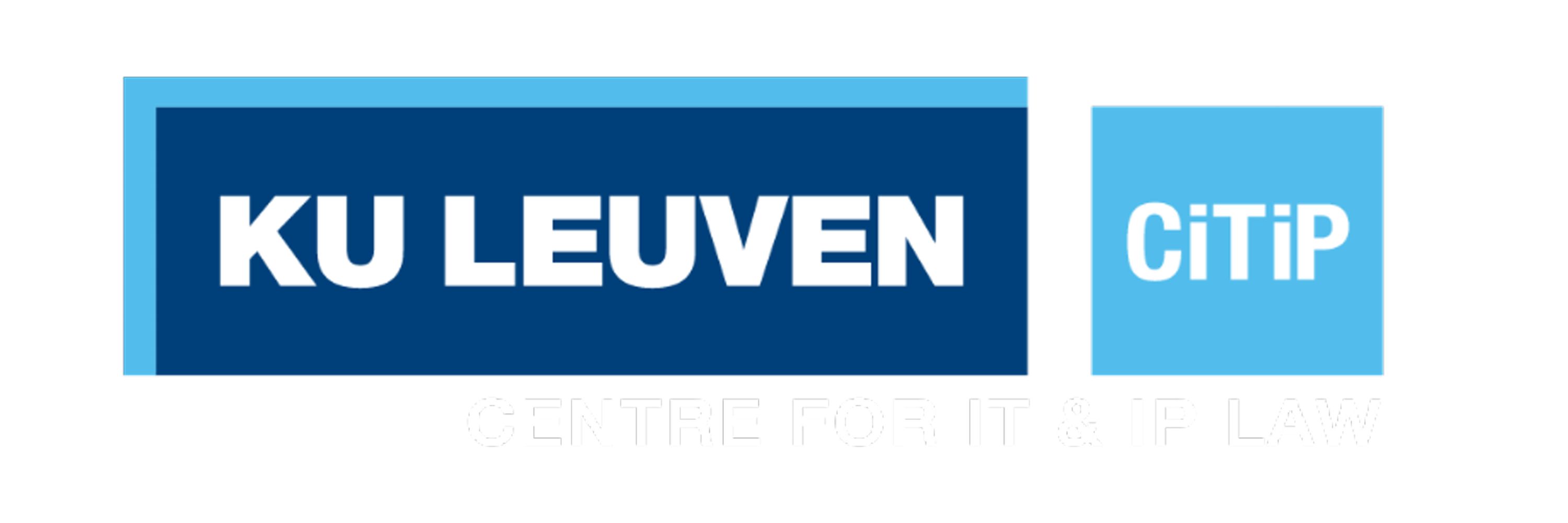
We’re CiTiP, leading research center on law and technology focusing on:
✅ Data protection & privacy
✅ AI, Data and Robotics
✅ IP
✅(Cyber)security
✅ and many more
Join us for insights and collaborations!
Let’s shape the future together: www.law.kuleuven.be/citip/en
Het CiTiP is op zoek naar een nieuwe medewerker om het Kenniscentrum rond Data & Maatschappij te vervoegen en ook mee te werken aan andere data- en AI-projecten binnen het onderzoekscentrum.
Interesse?
⌛Deadline 25 februari 2026.
Meer informatie👇

Het CiTiP is op zoek naar een nieuwe medewerker om het Kenniscentrum rond Data & Maatschappij te vervoegen en ook mee te werken aan andere data- en AI-projecten binnen het onderzoekscentrum.
Interesse?
⌛Deadline 25 februari 2026.
Meer informatie👇
In this post, @tkouloufakos.bsky.social examines the deployment of Foresight Methodologies as a useful tool to identify, address and resolve gaps and risks in critical infrastructure research.

In this post, @tkouloufakos.bsky.social examines the deployment of Foresight Methodologies as a useful tool to identify, address and resolve gaps and risks in critical infrastructure research.
Poland is currently the only EU Member State that has failed to establish a Digital Services Coordinator and fully implement the Digital Services Act after President Karol Nawrocki’s veto. Kamila Brylak breaks down the reasons for his decision.

Poland is currently the only EU Member State that has failed to establish a Digital Services Coordinator and fully implement the Digital Services Act after President Karol Nawrocki’s veto. Kamila Brylak breaks down the reasons for his decision.
🤝 @citip.bsky.social


🤝 @citip.bsky.social
🎙️In De Tijd en in Het uur van de waarheid vertelde ik over hoe ICE smartphonedata misbruikt
🗞️In Knack ging het over de grenzen aan internetblokkeringen
📺In het Journaal en op vrt nws gaf ik toelichting bij de impact van menstruatieapps op onze privacy
🎙️In De Tijd en in Het uur van de waarheid vertelde ik over hoe ICE smartphonedata misbruikt
🗞️In Knack ging het over de grenzen aan internetblokkeringen
📺In het Journaal en op vrt nws gaf ik toelichting bij de impact van menstruatieapps op onze privacy
During the Hilary Term, I’ll be continuing my PhD research on #AI and #justice⚖️ Please let me know if you're around to grab a tea/coffee🍵
Many thanks to my supervisors, @citip.bsky.social and @fwovlaanderen.bsky.social🙏



During the Hilary Term, I’ll be continuing my PhD research on #AI and #justice⚖️ Please let me know if you're around to grab a tea/coffee🍵
Many thanks to my supervisors, @citip.bsky.social and @fwovlaanderen.bsky.social🙏
EU–US data transfers survive another legal test. The Latombe judgment upholds the Data Privacy Framework, but legal certainty remains fragile. What does the judgement really mean?
👇👇👇

EU–US data transfers survive another legal test. The Latombe judgment upholds the Data Privacy Framework, but legal certainty remains fragile. What does the judgement really mean?
👇👇👇
How does the Data Act regulate business-to-government data flows in the case of an exceptional need?
@hernameissultan.bsky.social & Shannen Verlee break down the current regime, key criticism of the current wording of the legal provision, and the proposed Digital Omnibus reforms.

How does the Data Act regulate business-to-government data flows in the case of an exceptional need?
@hernameissultan.bsky.social & Shannen Verlee break down the current regime, key criticism of the current wording of the legal provision, and the proposed Digital Omnibus reforms.
As #AI enters the judiciary, it can subtly reshape legal reasoning. @victoriahendrickx.bsky.social explores how AI changes not just what is decided, but how justice is expressed through McLuhan’s ‘Medium is the Message’.

As #AI enters the judiciary, it can subtly reshape legal reasoning. @victoriahendrickx.bsky.social explores how AI changes not just what is decided, but how justice is expressed through McLuhan’s ‘Medium is the Message’.
Read more 👇

Read more 👇
Research results from the ISD warn about the prominence and easy discoverability of tools for non-consensual sexual deepfakes creation. This blog calls for a perspective shift to address the imbalance between their easy production and difficult removal.

Research results from the ISD warn about the prominence and easy discoverability of tools for non-consensual sexual deepfakes creation. This blog calls for a perspective shift to address the imbalance between their easy production and difficult removal.
Recently, the CJEU decided on the SRB v. EDPS. The blog post critiques the Court's articulation of the concept of pseudonymous data and examines the consistency of the decision with data protection law.

Recently, the CJEU decided on the SRB v. EDPS. The blog post critiques the Court's articulation of the concept of pseudonymous data and examines the consistency of the decision with data protection law.
From Australia’s bans to Europe’s push for mandatory age verification, lawmakers are reshaping how children access social media. But do these measures truly protect children or risk excluding them from vital online opportunities?
#ChildRights #OnlineSafety

From Australia’s bans to Europe’s push for mandatory age verification, lawmakers are reshaping how children access social media. But do these measures truly protect children or risk excluding them from vital online opportunities?
#ChildRights #OnlineSafety


CiTiP is looking for an enthusiastic and proactive researcher to join its team, work on data/AI law and provide research and valorisation support.
Interested in this multifaceted job?
⌛Deadline 15 December 2025.
More information👇

CiTiP is looking for an enthusiastic and proactive researcher to join its team, work on data/AI law and provide research and valorisation support.
Interested in this multifaceted job?
⌛Deadline 15 December 2025.
More information👇

🗓 In 2026, the Knowledge Center on Data & Society is organising a 𝗰𝗼-𝗰𝗿𝗲𝗮𝘁𝗶𝗼𝗻 𝘄𝗼𝗿𝗸𝘀𝗵𝗼𝗽 and are seeking participation from 𝗔𝗜 𝗽𝗿𝗼𝘃𝗶𝗱𝗲𝗿𝘀 𝗮𝗻𝗱 𝘀𝘂𝗽𝗽𝗹𝗶𝗲𝗿𝘀 in the AI value chain and 𝗹𝗲𝗴𝗮𝗹 𝗲𝘅𝗽𝗲𝗿𝘁𝘀.

🗓 In 2026, the Knowledge Center on Data & Society is organising a 𝗰𝗼-𝗰𝗿𝗲𝗮𝘁𝗶𝗼𝗻 𝘄𝗼𝗿𝗸𝘀𝗵𝗼𝗽 and are seeking participation from 𝗔𝗜 𝗽𝗿𝗼𝘃𝗶𝗱𝗲𝗿𝘀 𝗮𝗻𝗱 𝘀𝘂𝗽𝗽𝗹𝗶𝗲𝗿𝘀 in the AI value chain and 𝗹𝗲𝗴𝗮𝗹 𝗲𝘅𝗽𝗲𝗿𝘁𝘀.
www.law.kuleuven.be/citip/blog/s...

www.law.kuleuven.be/citip/blog/s...
EU design law distinguishes between various types of parts. Whether a ‘part’ qualifies in one of those categories has important consequences on the validity and scope of protection of design rights.
Read more 👇

EU design law distinguishes between various types of parts. Whether a ‘part’ qualifies in one of those categories has important consequences on the validity and scope of protection of design rights.
Read more 👇
In June 2025, the MDCG issued its long awaited Q&As on AI-based medical devices, but key gaps remain. In their new blog, @bisilisib.bsky.social & Marie Kohoutova unpack missed opportunities and offer recommendations for the next guidance.
Read their full blog post here 👇

In June 2025, the MDCG issued its long awaited Q&As on AI-based medical devices, but key gaps remain. In their new blog, @bisilisib.bsky.social & Marie Kohoutova unpack missed opportunities and offer recommendations for the next guidance.
Read their full blog post here 👇
Marta Musidlowska reflects on the EHDS Regulation, its push for digital healthcare in the EU, and the limited safeguards for those unable or unwilling to go online, raising questions about a potential “right not to use the Internet".

Marta Musidlowska reflects on the EHDS Regulation, its push for digital healthcare in the EU, and the limited safeguards for those unable or unwilling to go online, raising questions about a potential “right not to use the Internet".
Onze onderzoekers Rob Heyman en Jan De Bruyne werden vandaag geïnterviewd door De Morgen over deze tragische zaak.
@citip.bsky.social
@imec-smit.bsky.social

Onze onderzoekers Rob Heyman en Jan De Bruyne werden vandaag geïnterviewd door De Morgen over deze tragische zaak.
@citip.bsky.social
@imec-smit.bsky.social
This month, several of our colleagues shared their insights and expertise in the media — bringing their research to a wider audience. 🎙️📺 🗞️
Curious where to watch, listen, or read? See the links below👇👇👇
This month, several of our colleagues shared their insights and expertise in the media — bringing their research to a wider audience. 🎙️📺 🗞️
Curious where to watch, listen, or read? See the links below👇👇👇
Neurotech is leaving the lab for homes, hospitals—and courts. This playbook shows governments how to protect mental privacy and agency, ban coercive uses, classify risk, and fund what works—so innovation flourishes without sacrificing human dignity.

Neurotech is leaving the lab for homes, hospitals—and courts. This playbook shows governments how to protect mental privacy and agency, ban coercive uses, classify risk, and fund what works—so innovation flourishes without sacrificing human dignity.


